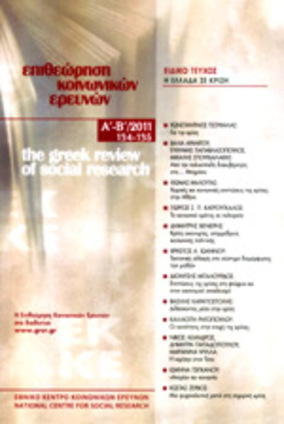Social Inequality, Poverty and Social Redistributio
Part of : Επιθεώρηση κοινωνικών ερευνών ; Vol.136, 2011, pages 9-23
Issue:
Pages:
9-23
Section Title:
Articles
Author:
Abstract:
In this essay, I review developments in the ongoing debate about the causal connections between poverty, personal behaviour and social inequality. I also discuss the normative issues that arise in defining poverty and in deciding what role redistributive social policies ought to play in its prevention and relief.I go on to compare the behavioural explanations of the causes of poverty that are normatively associated with theories of economic market liberalism and the structural explanations that are grounded in theories of socialism and other more pluralist forms of social-democratic collectivism.I conclude that these two unitary ideologies of individualism and collectivism are reaching the end of their useful lives as exclusive guides in shaping the ends and means of social policies. In democratic societies, compromises have to be made between radically different views about what constitutes an equitable distribution of wealth and income, and what kind of balance should be struck between the claims of freedom and welfare. Viable compromises on these divisive issues can only be reached in the mixed economies of democratic pluralist societies.
Subject:
Subject (LC):
Keywords:
poverty, inequality, freedom, welfare, social policy




